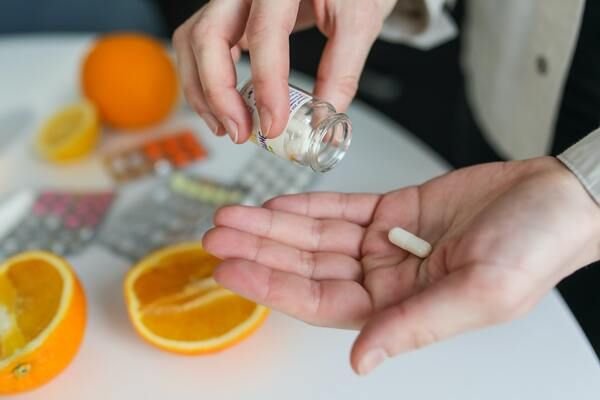
What Are Allergy Medicines? 5 Commonly Used Allergy Medicines
Nose allergy is a very annoying and difficult symptom. Even though many people have tried their best to improve the environment, such as cleaning, dehumidifying, changing sheets, and sharing rooms with pets, the symptoms of allergic rhinitis still do not relieve.
In this case, allergy patients need to seek drug treatment. But there are hundreds of allergy drugs. How do you know which allergy drug is most suitable and effective for you?
There are 5 major categories of allergy medicines
Allergy medicines can be divided into 5 major categories:
- Antihistamines
- Corticosteroids
- Decongestants
- Mast cell stabilizers
- Leukotriene antagonists
All the above drugs can treat or relieve allergic rhinitis, but they can be subdivided into different types according to the method of use and the ingredients of the drugs. They are introduced in order below.
1.Antihistamines
The first type of histamine receptor blocker (H1 receptor blocker) can block the allergic reaction mediated by histamine. It has a significant therapeutic effect on symptoms such as nasal itching, runny nose, sneezing, etc., but it has no effect on improving nasal congestion. ideal.
According to the usage method, it can be divided into:
- Oral antihistamines: Second-generation antihistamines are used as the main medication. Most of the effects on eye and nasal symptoms occur within 1 hour, and the effect on alleviating nasal congestion is moderate.
- Antihistamine nasal spray: It has a rapid effect on eye and nasal symptoms and takes effect within 30 minutes at the earliest.
According to the ingredients, it can be divided into:
- First-generation antihistamines: have central nervous system side effects, such as sedation, drowsiness, fatigue, and decreased concentration, and have weak anti-cholinergic effects, which may cause difficulty in urination, constipation, and dry mouth. , therefore children and patients with prostate hypertrophy should avoid taking it. They should also avoid driving and operating dangerous machinery after taking it.
- Second-generation antihistamines: Because they do not pass through the blood-brain barrier, they do not have central nervous system side effects, such as sedation or drowsiness, etc. They are safer and have a longer drug effect than the first generation, one day. It only needs to be taken 1 to 2 times, which is very convenient.
Common drug names:
- First-generation oral antihistamines: Pilian Tablet, Dex-CTM Tablet, Cypromin Solution, Cetirizine Oral Solution.
- Second-generation oral antihistamines: Denosin FC, Allegra Tablet, Xyzal Film-coated Tablet.
- Antihistamine nasal spray: Azetin Nasal Spray.
2.Steroids
Steroids can inhibit the inflammatory response, slow down the release of allergic mediators and their chemical reactions, stabilize the blood vessel wall, and reduce exudate. It has a significant therapeutic effect on various symptoms of allergic rhinitis, such as nasal itching, runny nose, sneezing and nasal congestion.
- Oral steroids are very effective in relieving the symptoms of allergic rhinitis, but long-term use should be avoided because they can easily cause many side effects. They are usually used in the acute stage of severe allergic rhinitis symptoms.
- Steroid nasal spray: It is the first-line treatment drug and is effective in controlling long-term allergic rhinitis. In addition to relieving many rhinitis symptoms, it is also effective in nasal congestion and restoring the sense of smell. It will take effect 6 to 12 hours after use, but the maximum effect will only be achieved after several days of continuous use.
Common drug names:
- Oral steroids: Predonine Tablet, Kidsolone Oral Solution.
- Steroid nasal spray: Avamys Nasal Spray, Nasonex Aqueous Nasal Spray.
3.Decongestants (nasal decongestants)
It can constrict the blood vessels in the turbinates and relieve the symptoms of nasal congestion. It is often used in combination with other drugs.
According to the method of use, it can be divided into:
- Decongestant nasal sprays: Most of the nasal sprays sold in pharmacies are of this type. They are suitable for quickly relieving nasal congestion symptoms and have no effect on other rhinitis symptoms. In addition, long-term use can easily cause drug-induced rhinitis and aggravate nasal congestion symptoms, so it is not recommended to use it continuously for more than 3 to 5 days.
- Oral decongestants: Due to side effects such as vasoconstriction, increased blood pressure, and mydriasis, they are rarely used in clinical practice. They are not recommended for patients with hypertension, cardiovascular disease, hyperthyroidism, etc. and for children.
Common drug names:
- Decongestant nasal spray: Sindecon Nasal Spray, Otrivin Nasal Spray.
- Oral decongestant: Seudorin Tablet
4.Mast cell stabilizer
Nasal spray drugs can stabilize mast cells in the nasal mucosa and inhibit their release of allergic mediators. It is mainly used to prevent the occurrence of nasal allergies, so it should be used before allergic reactions occur. It only has a mild relief effect on existing allergic symptoms. Overall, it is less effective than other drugs in improving nasal allergies.
Common drug names
Allergocrom Nasal Spray
5. Leukotriene antagonists
Oral drugs, most commonly sold are Singulair, which can reduce the activity of leukotrienes in the human body and alleviate various symptoms caused by the inflammatory process of asthma. It is mainly used for patients with allergic rhinitis combined with asthma.
Because it does not contain steroids, it has been widely accepted by domestic asthma patients in the past. However, in 2020, the US Food and Drug Administration FDA issued a statement stating that Singulair has neuropsychiatric side effects such as agitation and depression. Pay attention to the relevant warnings, which makes many mothers of allergic children worried, but in fact, it is safe to use and the incidence of side effects is extremely low.
Common drug names
Singulair













